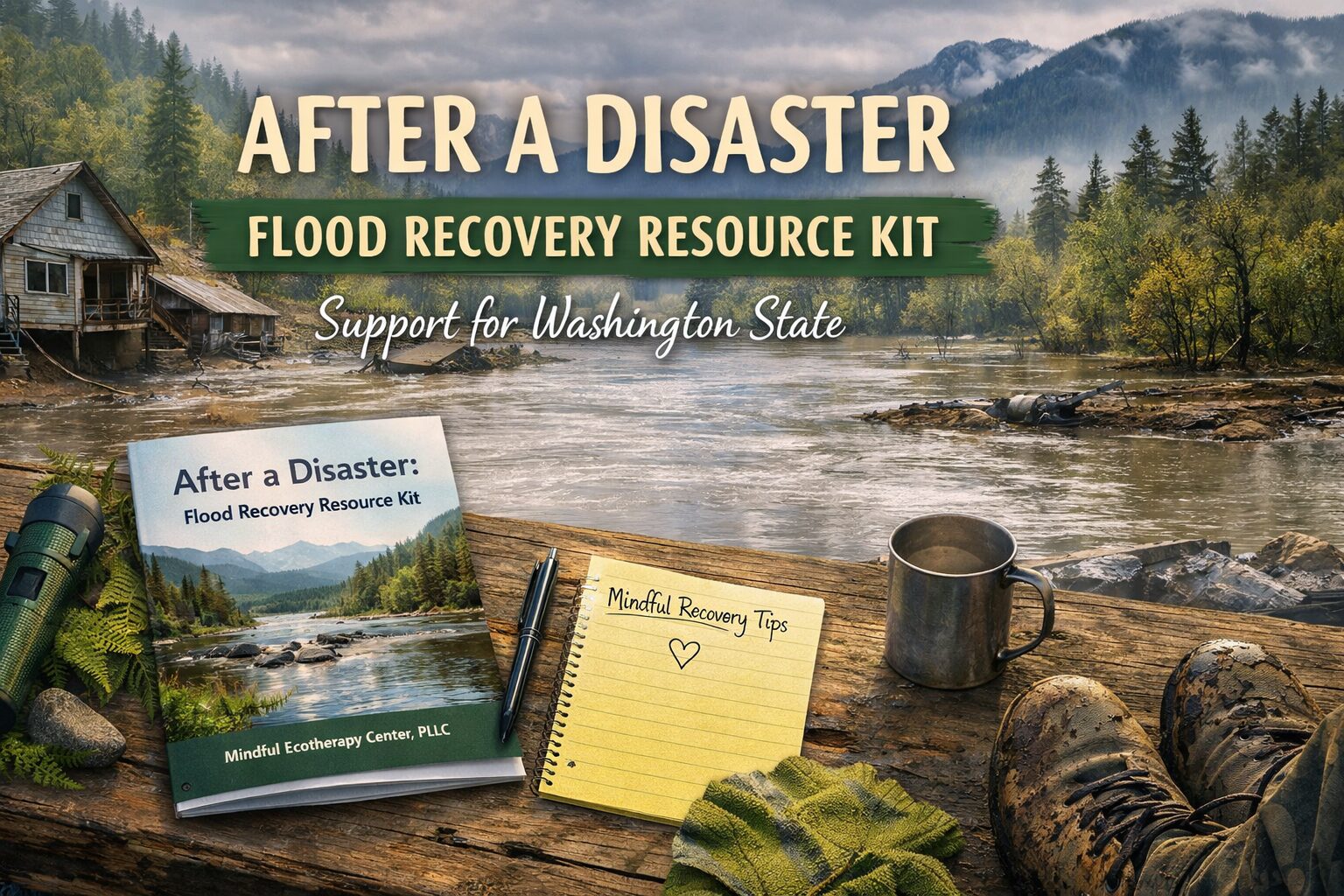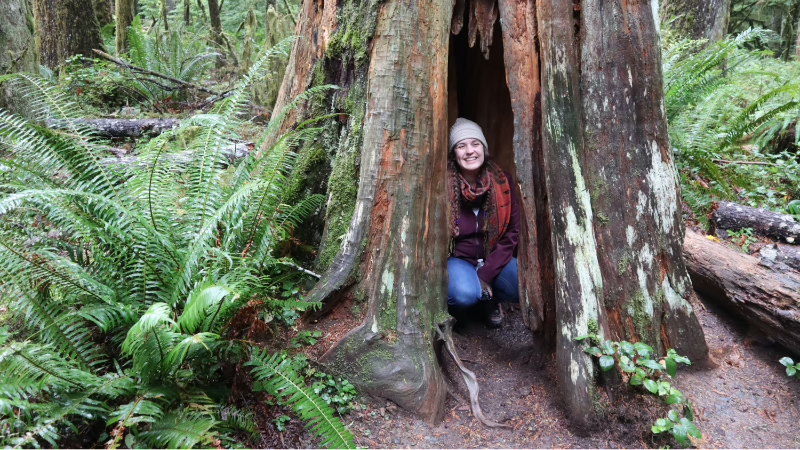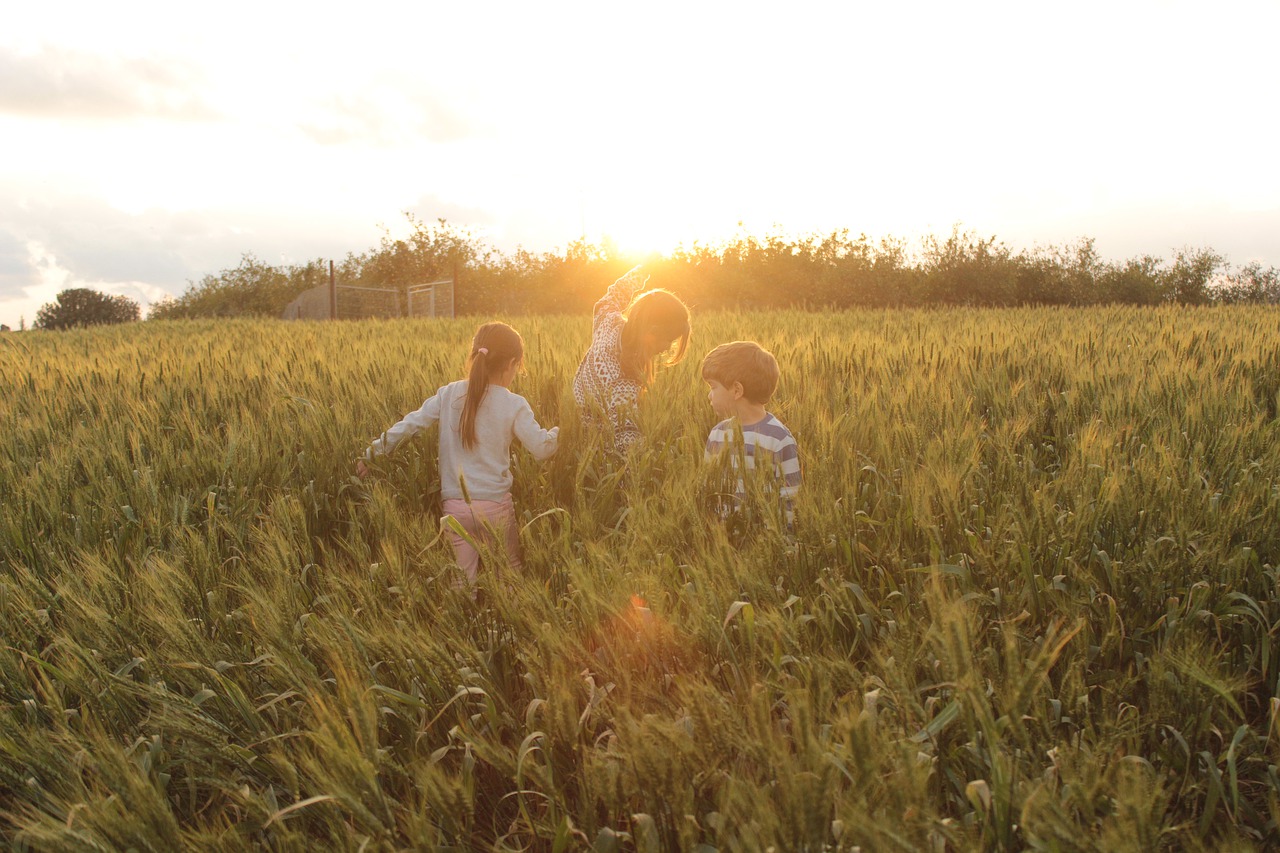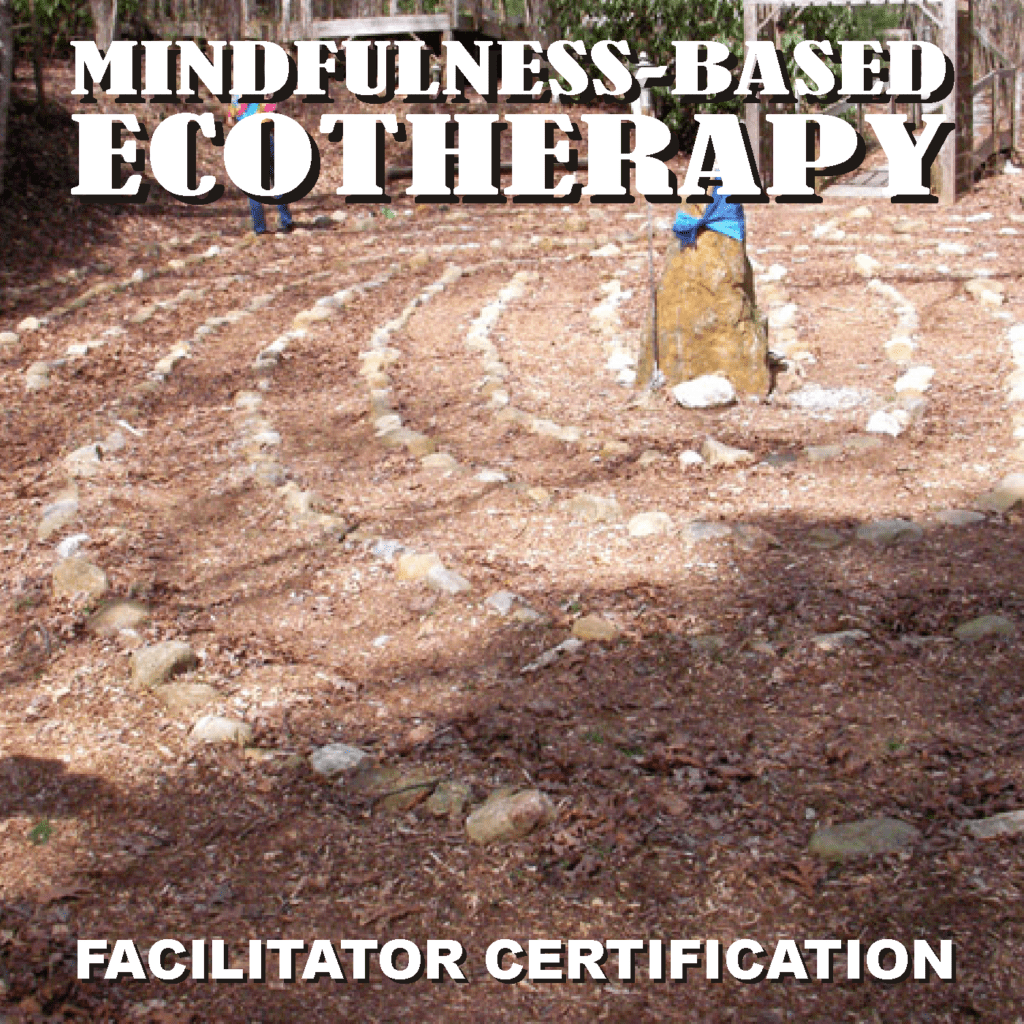
Table of Contents
When flooding hits, it doesn’t ask whether you were ready. It doesn’t check your calendar. It shows up, does damage, and leaves you to sort through what’s left. The recent flooding across Washington State has been exactly that kind of natural disaster—sudden, destabilizing, and deeply disruptive to entire communities.
At the Mindful Ecotherapy Center, PLLC, we work with people every day who are carrying an invisible weight. After a disaster, that weight multiplies. News coverage tends to focus on water levels, property losses, and infrastructure damage. What gets less attention is the emotional aftermath: shock, exhaustion, grief, anxiety, irritability, numbness, and the quiet fear that things may never feel stable again.
After a Disaster – Flood Recovery Resource Kit
We created the After a Disaster – Flood Recovery Resource Kit because telling people to “take care of themselves” after a flood is not sufficient support. It’s a vague suggestion offered when people are already overwhelmed. This kit is our way of offering something tangible, practical, and grounded to the local community during a time when clarity is in short supply.
The kit is completely free. That part is intentional. During a natural disaster, access matters. People are already dealing with insurance claims, temporary housing, disrupted work schedules, and the emotional toll of uncertainty. Support should not come with barriers or price tags attached. Making this resource freely available is one way we show up for our community beyond words.
Practical, Real-Life Help
The After a Disaster – Flood Recovery Resource Kit is designed for use in real-life situations. It meets people where they are. The worksheets and practices inside are meant to be used quickly, imperfectly, and revisited as needed. There is no expectation that you complete everything or do it “right.” Partial answers count. Skipping sections that feel overwhelming is not failure; it’s self-regulation.
This kit draws directly from mindfulness-based ecotherapy principles. That means it recognizes that healing after a natural disaster happens on multiple levels at once. The nervous system needs stabilization. The mind needs tools to manage intrusive thoughts and emotional swings. The body needs grounding. And connection, to the natural world and to other people, needs to be restored after it has been disrupted.
Recovery is Not Linear
Flooding can permanently alter someone’s relationship with their environment. Nature, which once may have felt neutral or even calming, can suddenly feel threatening. Land that once felt stable may feel unreliable. The kit gently supports rebuilding a sense of safety with the environment rather than avoiding it entirely. Mindful awareness of surroundings, sensory grounding, and nature-based practices are woven throughout because the environment can also be part of recovery.
The resource kit also acknowledges something that doesn’t get said out loud often enough: emotional reactions after a natural disaster are not linear, predictable, or tidy. People may feel “fine” one moment and completely depleted the next. Anger, guilt, grief, and relief can coexist in uncomfortable ways. The kit offers structured reflection and emotional check-ins that help people name what they’re experiencing without getting stuck in it.
Reconnecting to Community After a Disaster
Community connection is another core focus. Flooding often isolates people at the exact moment they need support most. Displacement, damaged roads, and disrupted routines can quietly erode social contact. The kit includes guidance for rebuilding connection, asking for help without shame, and engaging in collective healing efforts that honor both emotional experience and environmental impact.
This is not therapy in a box, and it’s not meant to replace professional care when that’s needed. It is a bridge. A stabilizing support offered during the window when people are most vulnerable and least resourced. It reflects the Mindful Ecotherapy Center’s belief that mental health support should be responsive, compassionate, and grounded in real-world conditions, especially during a natural disaster where help may be hard to access.
Supporting Our Community
Offering the After a Disaster – Flood Recovery Resource Kit is one way we extend care beyond our office walls and into the community. It’s our way of saying: you are not expected to hold this alone, and your emotional recovery matters just as much as the physical rebuilding.
The kit is available now as a free download through the Mindful Ecotherapy Center: https://www.mindfulecotherapy.org
If the flood has left you feeling unsteady, overwhelmed, or disconnected, this resource was created with you in mind.
Share Your Thoughts on the Washington Floods!
What do you think? Have you experienced difficulties due to the recent flooding? Do you have any resources for victims of this or other natural disasters? Share your thoughts in the comments below! And don’t forget to subscribe to our newsletter!






